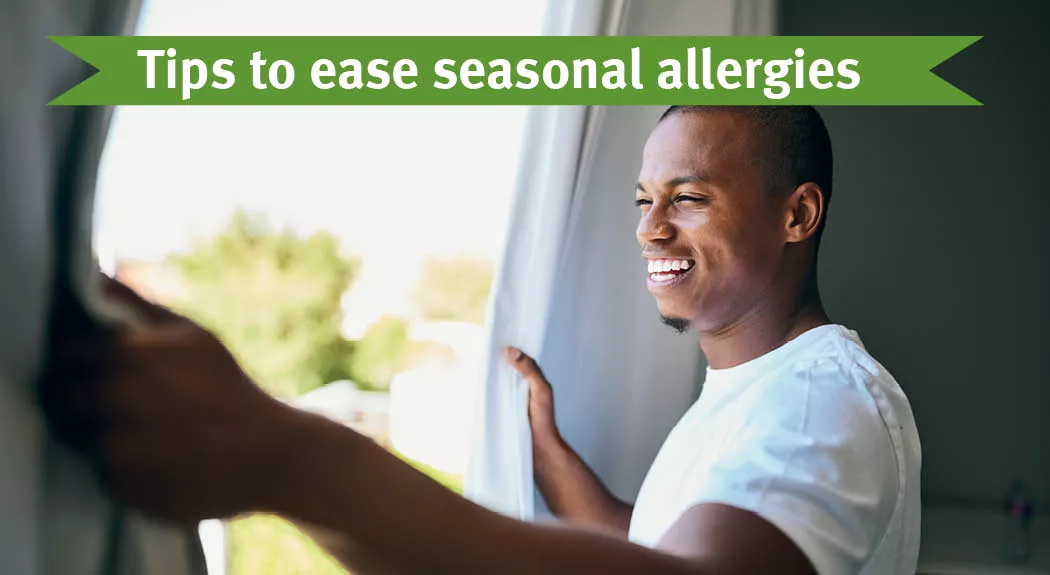by Luminis Health

Easing Seasonal Allergies: 6 Tips to Feel Better
If you have seasonal allergies, it’s likely you’re allergic to pollen, the fine powder that comes from flowering plants. Pollen can travel great distances through the air and is easily inhaled through your nose and mouth.
One way to plan your outdoor activities to avoid high pollen days is to monitor local weather reports. Many weather reports include allergy forecasts as a way to alert you to the amount of pollen, mold or other particles in the air on a given day.
Pollen count is expressed in grains of pollen per square meter of air collected over 24 hours. It is usually highest early in the morning and on warm, windy days. It’s lowest during chilly, wet periods. Summer thunderstorms can also affect pollen count, because wind scatters the pollen and heavy rain breaks it up into smaller pieces that are easier to inhale.
On days with particularly high pollen counts, there are several steps you can take to reduce the severity of allergy symptoms, such as:
- Remaining indoors in the morning, when pollen counts are highest.
- Using air conditioning and filters in your car and home, instead of opening windows.
- Wearing a face mask designed to filter pollen when working outside.
- Wearing sunglasses to reduce the amount of pollen that gets in your eyes.
- Showering before bed, to avoid bringing pollen into your bed.
- Asking your doctor about over-the-counter or prescription medications to treat seasonal allergies.
Originally published Aug. 9, 2016. Last updated March 10, 2020.



